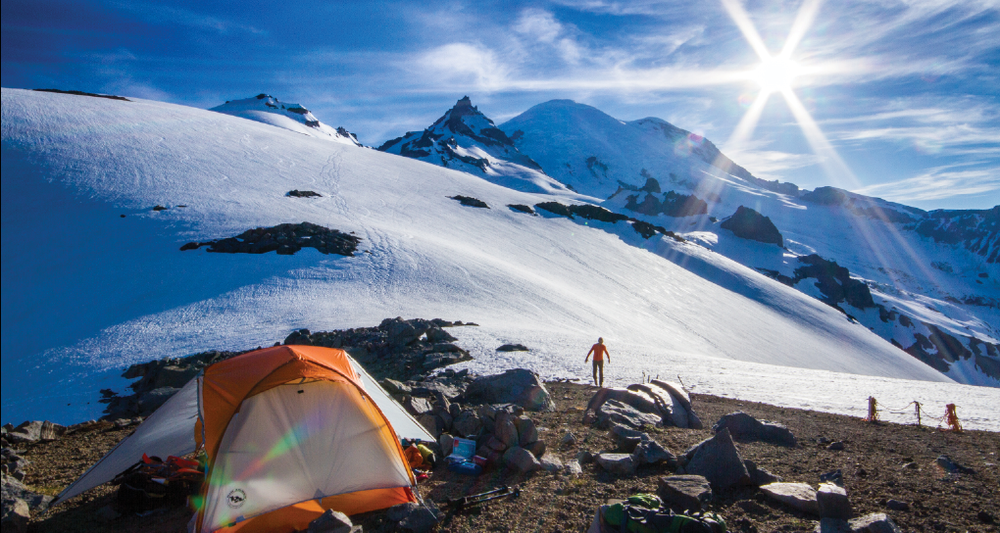
In many mountainous and polar regions, snow turns pink in the summer as communities of algae blossom. The pigmentation evolved as a protective mechanism against high levels of radiation. During this era of rising temperatures, the algae creates a feedback effect whereby the darkness spreading over the snow absorbs more of the sun’s rays to increase melting, adding more reflective water to the snow that in turn feeds the algae, furthering warming, accelerating climate change.
A resilient speck of life responds to a threat but hastens an even larger potential catastrophe. Will the feedback loop consume itself? Is life itself resilient?
Humans admire resilience. We love the baseball team that bounces back from certain defeat. We root for the hero who gets knocked down, but gets back up again. We go to ticker tape parades for the soldiers who won’t be defeated.
Resilience is the property that most reflects our own striving nature.
It is often defined as the capacity to recover quickly from difficulties and as the ability of a substance or object to spring back into shape. But there is nothing inherently positive in that elasticity.
Resilience wields a double-edged sword.
We call the people living in regions that rebuild after recurring natural disasters resilient. Fire destroys your home. You rebuild. Hurricanes wipe your town off the face of the earth. You rebuild. But when the cycle repeats itself over and over, just what is admirable?
We honor and respect the children who bounce back from abuse and violence. Forced to be pawns in some of the most insidious actions another human can undertake, some few find ways to overcome, to live lives of respect and dignity, to even find strength and compassion in their experience.
But their abusers are resilient too. There seems to be some elasticity to notions of exploitation that allows it to linger in the species. There is some power in hatred of ‘the other’ that returns to debase the human story again and again.
How else to describe the resilience of murder, the staying power of bigotry? How else to explain the gaze averted, the soul that turns a blind eye.
Over the centuries, our social compact evolved to a point where resilience could be examined through scientific rigor, with facts based on examination of the properties of each working part of the greater whole.
After decades of study, psychologists and sociologists find resilience to be a fluid and adaptable trait. Environmental threats to the human psyche come in many guises. In positive terms, the resilient person has an independent outlook, confronting the world on their own terms with a positive disposition and most critically, a belief that in the end, they determine their own fate.
But a positive outlook isn’t permanent and a person facing multiple stressors can eventually succumb.
Bad ideas seem to be just as resilient as good ones. Resilience in human thinking, like resilience of the so-called watermelon snow, is a natural property and serves neither good nor evil.
It just is.
Now, even as science is liberating knowledge from the tiniest fragments of the physical world, a search for truth is being replaced with a hunger for retribution, a quest for ascendance, a turn to willful ignorance in the face of hard won truths.
Our only route forward seems to be to answer the illogic with logic and find ways to reduce the stress while arming ourselves with tools to respond.
Such is the power of resilience.
This article originally appeared in our Winter 2018 issue of Mountaineer Magazine. To view the original article in magazine form and read more stories from our publication, click here.
 Steven Scher
Steven Scher